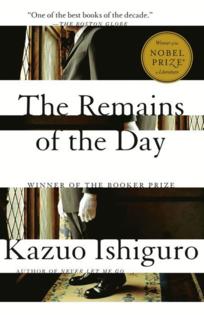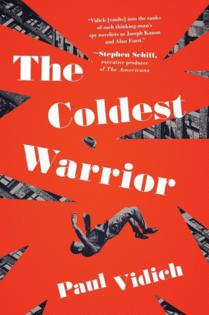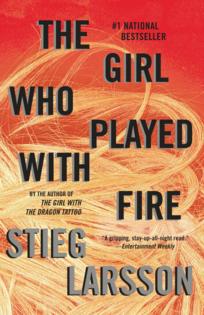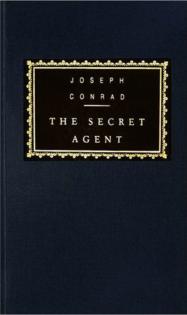8 books that prove history is never neutral
Published in Mom's Advice
Some scars don’t fade and some threats don’t disappear. They evolve, adapt and burrow into the cracks of modern life, waiting …
These thrillers don’t just tell stories, but rather dig up what we thought was buried — ideologies dressed in new skin, Cold War ghosts whispering through modern politics, conspiracies that fester until someone reckless enough pulls the thread.
These are books about what happens when history comes back for answers, and it’s holding a knife.
If you’re drawn to morally gray characters, tangled plots and stories that feel too close to home, these eight books will pull you under and make you question whether you really want the truth.
The Remains of the Day by Kazuo Ishiguro
On the surface, "The Remains of the Day" is a novel about a dignified English butler clinging to routine and restraint. Beneath it, a quiet political reckoning unfolds. For 30 years, Stevens served a man who sympathized with fascism. He knows it, and he doesn’t. The genius of the book is in what it doesn’t say outright … how personal denial feeds historical catastrophe. It’s not about action, but about how inaction can destroy lives just as thoroughly. No guns, no spies, just a devastating reminder that political evil thrives in polite silence. History, here, is shaped by those who refuse to acknowledge it.
Black Sun Rising by Otho Eskin
In the aftermath of a fellow detective’s murder, Marko Zorn begins to pull at loose threads. What unravels is a neo-Nazi conspiracy buried inside the nation’s capital. It is not a theoretical threat, but an active and growing one that draws its inspiration from the darkest chapter of the 20th century. The thriller blends murder investigation with geopolitical rot, exposing how ideology isn’t just a relic of the past, but something that adapts, recruits and institutionalizes itself. Fast paced and intelligent, "Black Sun Rising" explores the tension between law enforcement and political extremism with unnerving clarity.
The Odessa File by Frederick Forsyth
This 1972 novel feels somewhat prophetic. When journalist Peter Miller uncovers evidence of Nazi war criminals living freely under false identities, he follows a trail that leads straight to ODESSA, a real postwar organization helping SS officers escape justice. What makes it unforgettable is its blend of journalistic doggedness and moral outrage, illustrating how easily entire governments and institutions turn a blind eye in the name of peace. The pacing is relentless, the stakes feel historical and personal, and the question lingers: how many escaped accountability while the world tried to move on? The novel makes one thing clear: history unexamined becomes a weapon disguised as peace.
The Secret Agent by Joseph Conrad
Written in 1907 but chillingly contemporary, "The Secret Agent" explores terrorism as spectacle and political manipulation as theater. Mr. Verloc is both an agent provocateur and a pawn, his loyalties split between anarchists, foreign embassies and his own collapsing domestic life. What Conrad understands, and renders with almost unbearable bleakness, is that political violence doesn’t need a purpose. It just needs opportunity and someone willing to trade conviction for usefulness. It’s a dark blueprint for the age of performative radicalism. In Conrad’s world, history is shaped by opportunists who exploit chaos, not ideologues with vision.
The Ghost by Robert Harris
A writer is hired to polish the memoir of a former British Prime Minister whose legacy is being quietly, viciously rewritten. What starts as a high-paying gig turns into a descent into political secrets that echo too closely to real-world events. Harris, a master of controlled paranoia, paints a world where spin doctors, military decisions and backroom alliances bleed into propaganda and where writing the truth might be deadlier than living with the lie. "The Ghost" is elegant, scathing and sharp enough to draw blood. It’s a warning that history is often rewritten by those with the power to bury the truth.
The Girl Who Played with Fire by Stieg Larsson
At first glance, "The Girl Who Played with Fire" is a murder mystery. At its core, however, it’s a systemic indictment. As Salander becomes entangled in a triple homicide and hunted by state forces, Larsson exposes the machinery that protects abusers, traffickers and politicians — and punishes the victims who try to fight back. The novel pulses with rage, and every conspiracy is backed by documentation, which makes it all feel uncomfortably close to real. It’s not just a thriller, it’s a scream across bureaucratic silence. Larsson shows that when the system writes history, it often erases the abused and absolves the powerful.
Red Sparrow by Jason Matthews
"Red Sparrow" isn’t the slick fantasy of spy seduction, but rather a peek into what it looks like when governments weaponize sex, psychology and trauma for state gain. Dominika is trained to be a Sparrow, a Russian operative taught to manipulate her targets completely. But as she navigates her dual life and crosses paths with a CIA officer, everything blurs: allegiance, identity, autonomy. Matthews’ CIA background adds grit and credibility, but it’s his refusal to romanticize the spy world that makes this such a cold, bitter, brilliant read. Here, history is not written by victors — it’s inflicted on the bodies of the expendable.
The Coldest Warrior by Paul Vidich
It begins with a body thrown from a window in the 1950s, labeled a suicide. But decades later, a retired intelligence officer starts asking the wrong questions, and the truth — or what remains of it — begins to surface. Inspired by the real-life death of Frank Olson, "The Coldest Warrior" examines how governments can destroy individuals in the name of secrecy, how agencies often retain no memory and how the truth is frequently suppressed. It’s quiet, methodical and deeply angry beneath the surface. A political thriller that doubles as a moral indictment. It’s a testament to how official history is often just a sanitized version of institutional violence.

















Comments